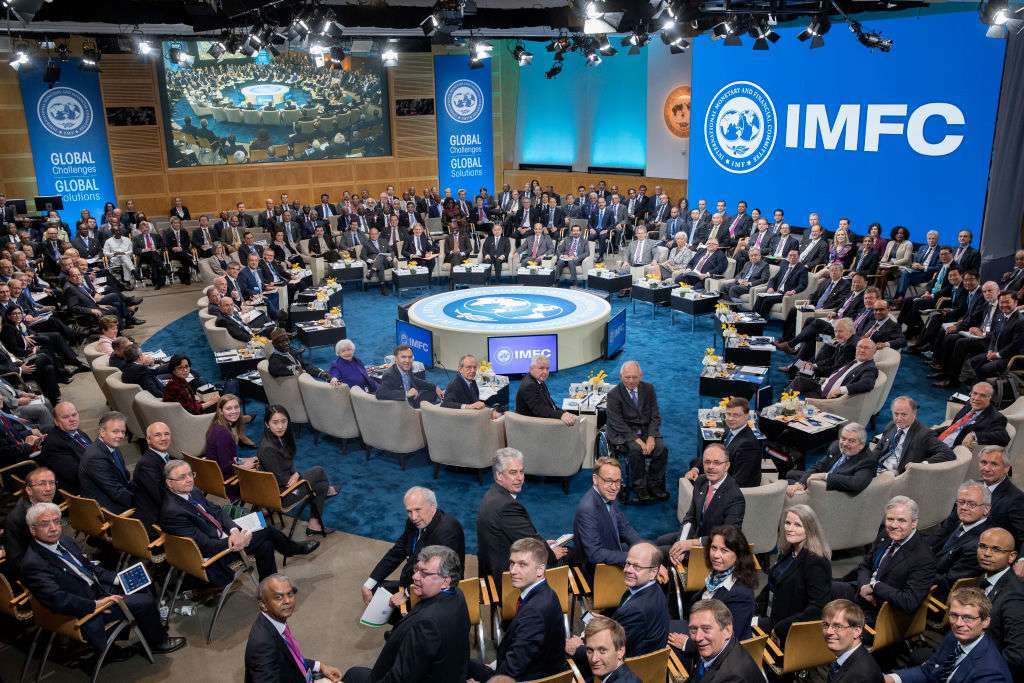When Help Hurts: IMF’s Integrity and Its Political Exploitation in Poor Nations
With the termination of the IMF’s ECF, Malawi has become the latest frontline in the growing battle between national sovereignty and supranational financial institutions. IMF, an organization once seen as a rescuer of economies in distress, is now increasingly viewed as a predator cloaked in policy.
While the suspension of Malawi’s ECF has drawn mixed reactions, one thing is clear: the integrity and intentions of the IMF must be questioned, and the misuse of its role by domestic politicians poses a serious threat to national unity and sovereignty.
The IMF claims to help countries stabilize their economies, restore investor confidence, and implement essential reforms. However, its history in Africa tells a different story. The structural adjustment programs (SAPs) of the 1980s and 1990s, often touted as necessary prescriptions, led to widespread social and economic deterioration.
Schools and hospitals were closed, thousands of civil servants were laid off, thriving companies initially run by the state stopped operations after being handed over into private hands, and essential subsidies were scrapped—all in the name of “fiscal discipline.”
Fast forward to 2025, and the script hasn’t changed much. In the latest episode involving Malawi, the IMF demands fuel price hikes (during a cost-of-living crisis), a freeze on civil service recruitment (despite service delivery gaps), and wage cuts (when inflation is eroding incomes).
These, to be brutally honest, are socially explosive demands that risk plunging nations into unrest. When such conditions are attached to loans, one must ask: Is the IMF promoting development—or destabilization?

The IMF’s conditionality regime appears to be wildly inconsistent and, at times, politically convenient. Larger economies with worse debt levels—like Egypt, Kenya—face less publicized pressure and more generous timelines. Meanwhile, Malawi, whose IMF debt doesn’t even rank in the top 20 in Africa, is held to severe and arguably unrealistic standards.
This discrepancy begs serious questions: Why does a low-debt, low-influence nation like Malawi get such harsh conditions? Is there favoritism based on geopolitical interest or donor politics? Are IMF programs being used to test ideological loyalty to neoliberal reforms?
Such inconsistency erodes the Fund’s credibility and fuels suspicions of economic colonialism, where poor countries are pushed to their knees in the name of reform—while the rich and powerful remain untouched.
Even more troubling is how opposition politicians in poor countries weaponize IMF involvement to discredit sitting governments. In Malawi, critics have rushed to frame the suspension of the ECF as evidence of mismanagement and corruption, ignoring the damaging nature of the IMF’s demands.
This opportunism is not unique to Malawi. Across Africa, IMF disbursements (or the lack thereof) are politicized to win elections, sow discord, and trigger public panic. The result? Loss of investor confidence due to negative political rhetoric; undermining of national institutions, including central banks and finance ministries; erosion of sovereignty, as policy decisions are dictated more by foreign creditors than by elected leaders.
The irony is that in trying to score political points, opposition figures often accelerate the very instability they claim to oppose.
The Cost to Sovereignty: A Nation on a Leash
When a nation’s economic policies are dictated from Washington D.C., it ceases to be fully sovereign. Malawi’s firm stance—refusing to implement IMF conditions that would hurt its citizens, is not a failure of leadership. It is a rare and courageous assertion of national interest over external pressure.
But if the IMF can be used as both a lender and a political weapon, sovereignty becomes meaningless. What’s worse, if governments fear that IMF support will be twisted into a political trap, they may avoid needed reforms altogether, leading to further stagnation.
What Must Change?
- Rethink IMF Conditionalities: The IMF must abandon the tired playbook of austerity and adopt context-sensitive, pro-poor models of support. Development isn’t just about numbers—it’s about people.
- Call Out Political Exploitation: Civil society and the media must hold opposition leaders accountable when they exploit IMF narratives for short-term gain at long-term cost.
- Push for Transparency and Fairness: Why are some countries punished more than others? The IMF must demonstrate integrity and consistency in its treatment of borrowers, or risk losing legitimacy.
- Empower Local Institutions: Malawi has shown it has the expertise to make tough decisions. Global institutions must respect local knowledge, not impose external dogmas.
The IMF was meant to stabilize economies—not destabilize governments. When its programs become tools of oppression or political weapons, we must speak up. Malawi’s refusal to implement self-destructive reforms is not incompetence—it is leadership.
If we are serious about development, sovereignty, and democracy, we must ask: Who benefits when a nation is forced to choose between the will of its people and the wallet of its creditors?
Until we answer that question honestly, the IMF will remain what many already believe it to be: a lender with strings so tight, they choke the very life they claim to save.








